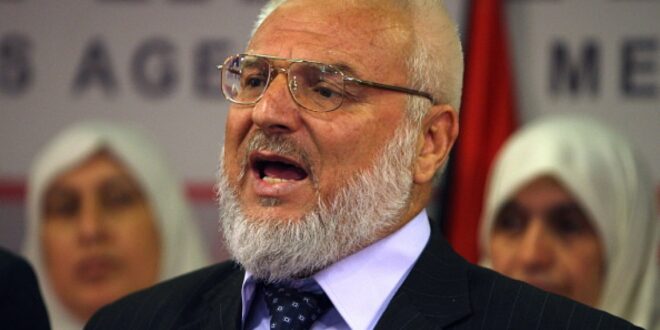The Gaza-based Palestinian Legislative Council has called for international inspections of Israeli detention facilities.
The Palestinian Legislative Council has called for international intervention to inspect Israeli detention centres following the recent release of several emaciated looking prisoners after prolonged periods in custody.
The latest releases have sparked growing concerns over the conditions and treatment of detainees in Israeli prisons.
Among those freed were Aziz Dweik, the Speaker of the Palestinian Legislative Council, with activists heightening alarm over his health after photos of him surfaced appearing frail and gaunt.
Dweik, 77, was arbitrarily detained in October and was released on Thursday in the occupied West Bank city of Hebron at a military checkpoint, after he was accused of having ties with Hamas.
“The Council, sharing its condemnation over Dweik’s state, said it “looks with anger at the crimes committed by the enemy against the prisoners, and the greatest example is the photo of Dr. Aziz Dweik when he left the occupation prisons.”
The Council also said Palestinian detainees are regularly subjected to various forms of abuse such as forced starvation, isolation and torture.
In his first media appearance post-release, Dweik explained that while being detained in prison, he was stripped of his rights and dignity despite his age and pre-existing health conditions.
“What is happening to the detainees in the prisons is a real massacre where Palestinians are being killed and starved all the time,” Dweik said.
“Naqab Prison is worse than Abu Ghraib and Guantanamo, where the occupation acts as gangs…prisoners are killed, their lives go in vain, and they are starved for 24 hours a day,” he said.
“The prisoners are in poor health conditions, suffering from skin diseases, and the food is insufficient even for children, let alone meeting the needs of men,” he added.
Dweik also described how sugar, salt, and fruit were “virtually absent” in prison, adding that every ten prisoners were forcibly told to share 35 green beans to eat among them.
The image of a gaunt looking Dweik circulated less than a week after photos of Bassem Tamimi, a Palestinian activist, were published showed him also looking thin and frail after his release.
“[In person] he looks even scarier than in that picture. He is a frightful sight, marks of beatings all over him, eyes lined with red, so thin his cheeks look like gaping holes at the centre of his face,” one social media user noted.
Medical neglect, torture
The Palestinian Prisoners’ Club (PPC) have joined in accusing Israeli authorities of medical neglect, adding that the condition of the prisoners “reflect some of the harsh and humiliating conditions of detention, including acts of torture, abuse and starvation, in addition to medical crimes.”
Approximately 30 prisoners were released from the Negev and Ofer prisoners this week.
Most Palestinians held were administrative detainees, who were not charged with any offenses.
According to the Palestinian Prisoners’ Society, detainee Saed Abu Shanab from Tulkarm, spent 21 years in Israeli prisons.
The group claimed that Abu Shanab had not received any necessary treatment during his detention, and was not allowed to have his family visit him.
Palestinian prisoner rights group Addameer called on the International Criminal Court (ICC) to hold Israeli officials accountable for alleged crimes committed against detainees.
“Addameer has extensively documented crimes committed against Palestinian detainees, all of which fall under the crimes listed by the Prosecutor [Karim Khan] such as starvation, wilfully causing great suffering, or serious injury to body or health, or cruel treatment, and especially persecution as a crime against humanity,” the organisation said in May.
While the group welcomed the news of the ICC issuing arrest warrants against top Israeli officials on allegations of war crimes in its months-long assault on Gaza, Addameer highlighted concerns over the increase of acts of torture against Palestinian detainees since 7 October.
“Detention conditions are deteriorating, including with the provision of extremely poor food portions, forcing detainees to sleep in very cold cells, overcrowding of cells, and detainees having to sleep on the floor,” it said.
“Palestinian detainees are subjected to beatings multiple times a day, sometimes until loss of consciousness, forced to stay in stress positions, threatened, including with death, sexual violence, or threats on their families, and regularly strip searched.”
The Public Committee Against Torture in Israel (PCATI) reports that more than 1,400 complaints of torture had been submitted to Israel’s Ministry of Justice since 2001.
According to PCATI, all the cases were closed and an indictment was never issued.
 Eurasia Press & News
Eurasia Press & News




